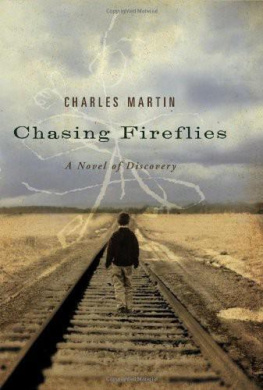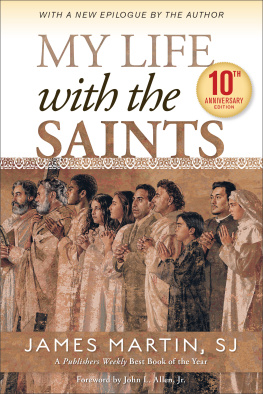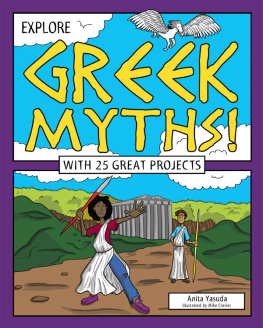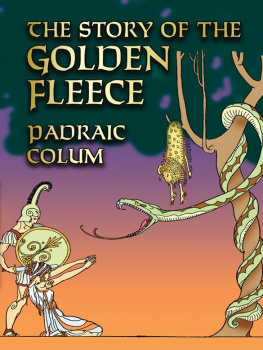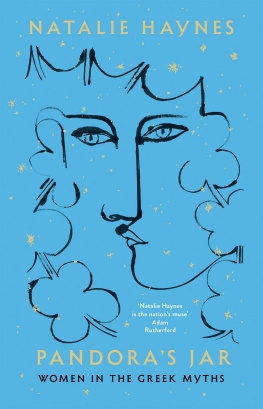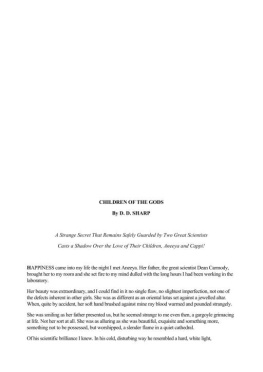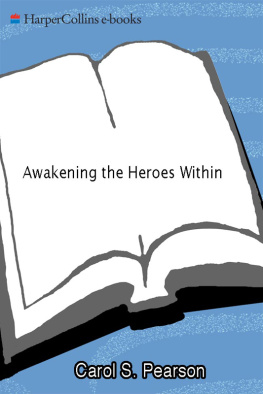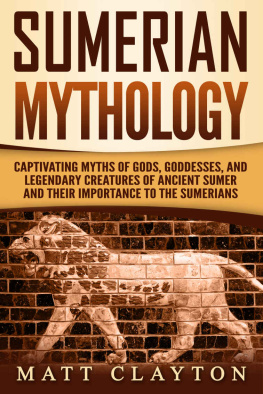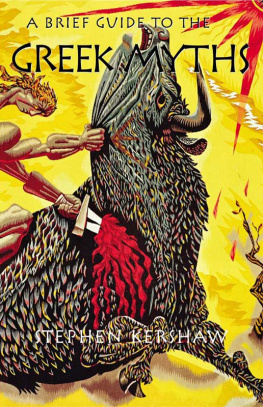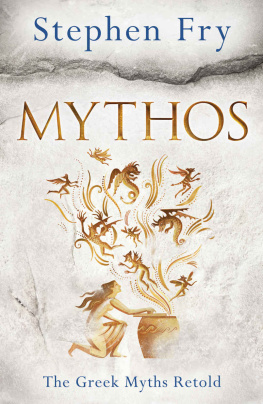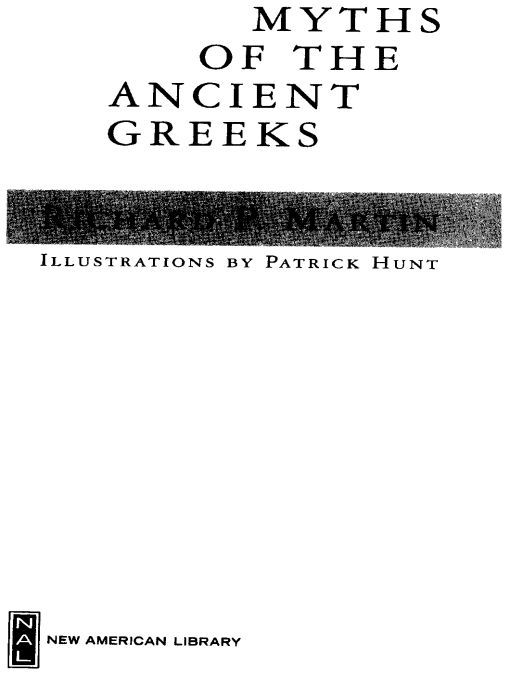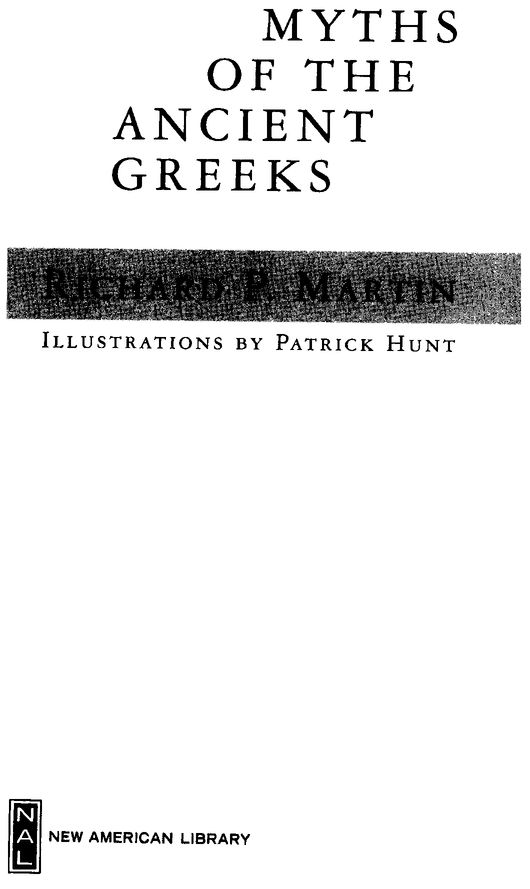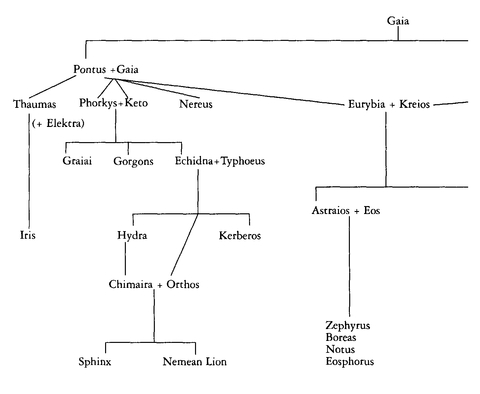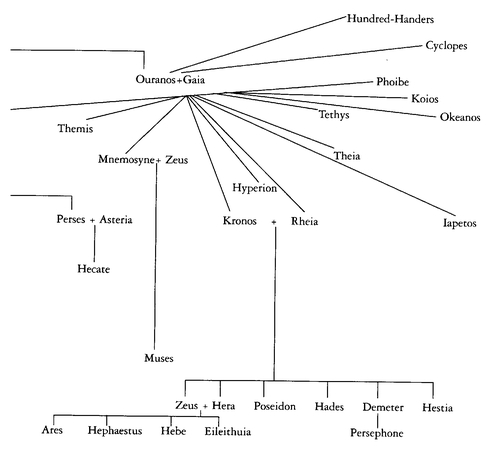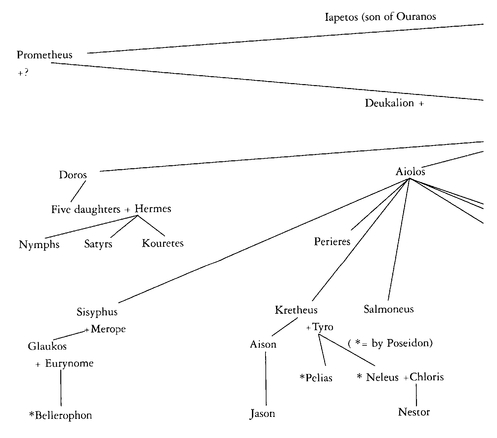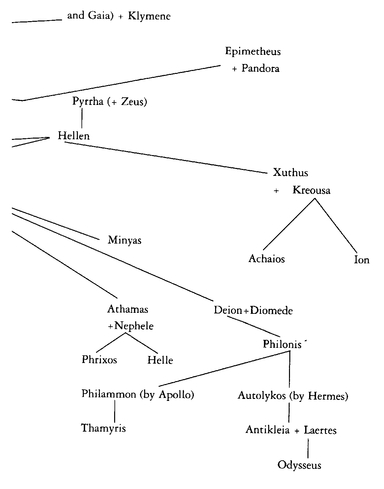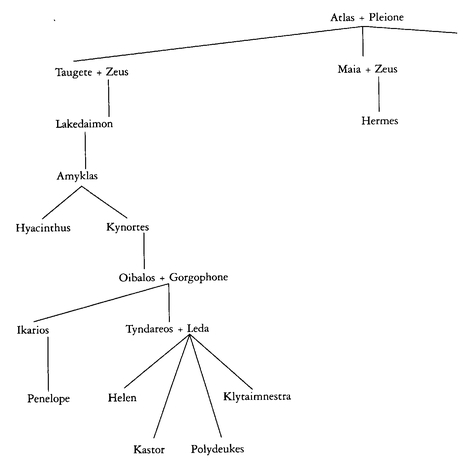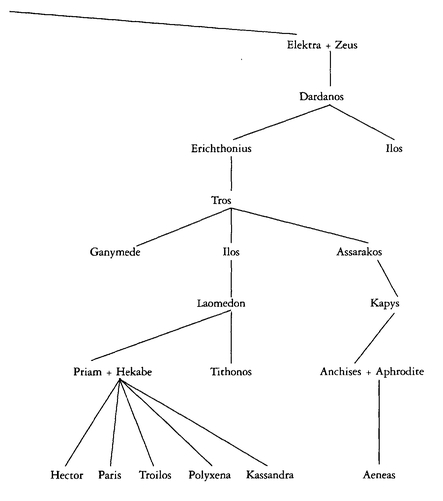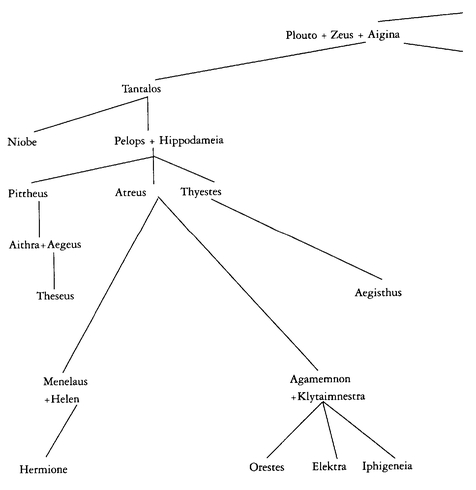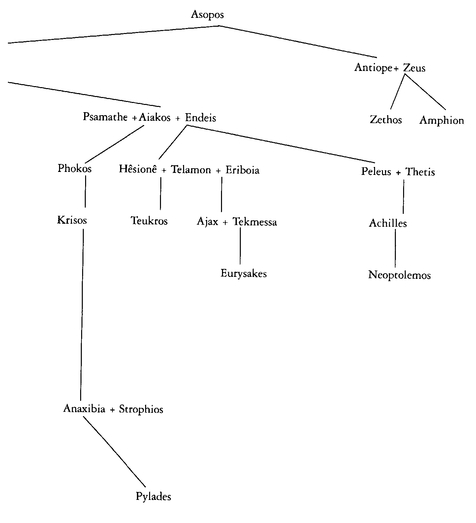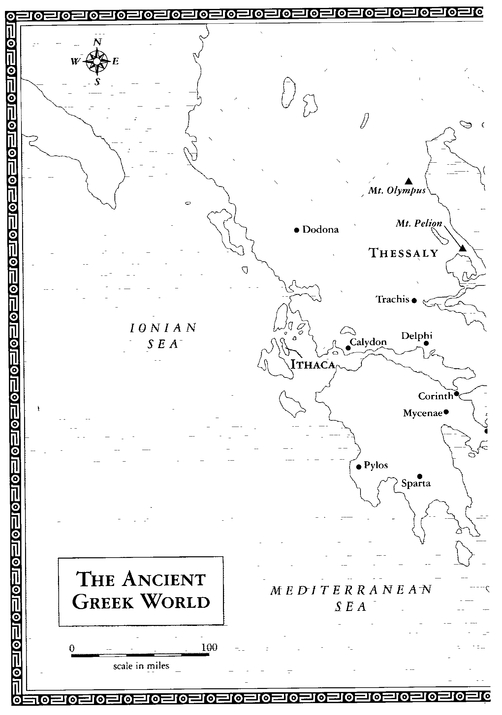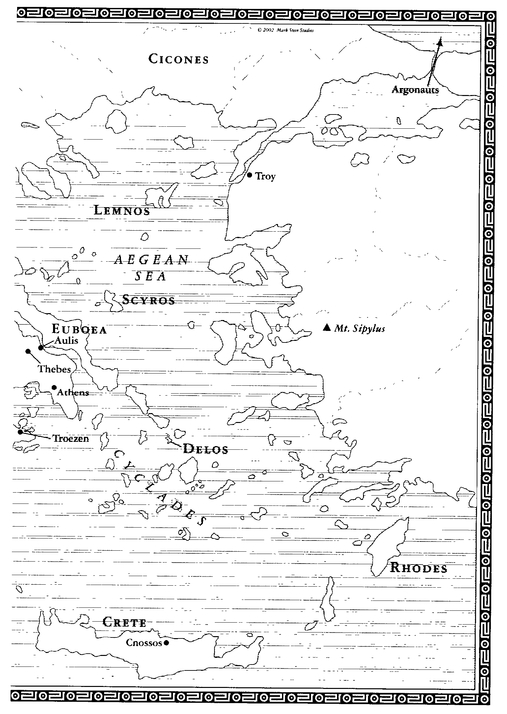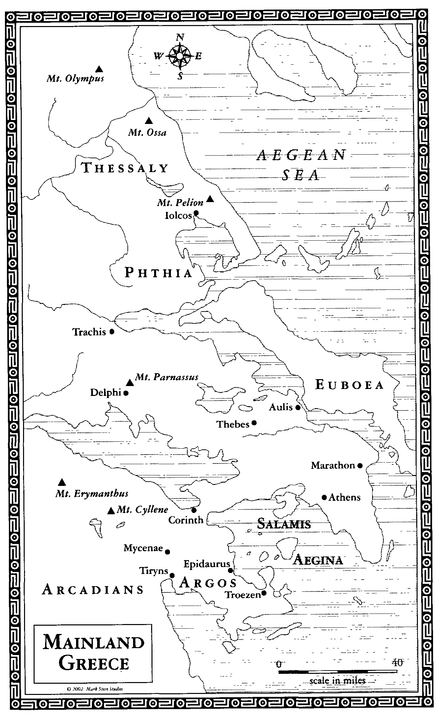Table of Contents
For Tom and Catherine,
who liked stories
THE BEGINNINGS: GODS AND CREATURES
OFFSPRING OF IAPETOS THE TITAN
DESCENDANTS OF ATLAS, GREEK AND TROJAN
WARRIORS, KINGS, AND HEROINES FROM ZEUS
THE ANCIENT GREEK WORLD
MAINLAND GREECE
INTRODUCTION
MYTHS ARE STORIES THAT CONTINUE to engage the imagination of a society over a long period of time. The stories you are about to read were told more than two thousand years ago by Greeks who lived in communities all around the Mediterranean Sea and beyond, from what is today southern France to the eastern shore of the Black Sea, from the northern Balkans to North Africa. They reflect the thoughts of a complex civilization and at the same time allow us to enter the vibrant private spaces of an archaic culture. Long before they were written down, myths from Greek-speaking lands were passed from one generation to the next by word of mouth. Later, they were recorded in a bewildering number of epic and lyric poems, tragedies, comedies, histories, scholarly compilations, travel books, philosophical dialogues, and scientific works of all sorts, from the eighth century B.C. until Constantinople fell to the Ottoman Turks in 1453 A.D. Although some entire works made their way down to our time, painstakingly copied and recopied in manuscripts until the age of printing, many of these ancient writings are today lost. We have what survived in papyrus fragments or literary quotations. Already by the third century B.C. the Romans had discovered this rich body of stories and had begun to exploit it in creating their own art and literature. By 100 B.C., when the Roman empire had expanded to include most of the Greek-speaking world, the classic myths had become a part of basic schooling. Through Latin sourcesespecially the works of the poet Ovidthe tales found their way into later European culture, where they became so deeply embedded in art, literature, and thought that, to this day, no one in the West who is unfamiliar with Greek myths can seriously claim to be an educated person.
At the same time, there is the risk that the myths become too familiar to us. The Greek gods and goddesses have been taken over for less than divine objects, providing labels and images for everything from rockets to sneakers to cement. Jellyfish, software programs, moths, and Jupiters moons bear names from myths. Cartoons and childrens books have spread awareness of the stories, but at the cost of distorting and trivializing them. Meanwhile, self-help and assertiveness-training books appropriate myths for their own ends, urging us to follow our quests, find inner heroes and goddesses, mimic Artemis in the boardroom or Herakles in the gym. Tales that once unified a whole culture, enabling it to reflect on major public concerns, have largely turned into private icons, ripped from their social, religious, and artistic roots.
A book that presents these tales to the twenty-first century must do more than make the stories known to those encountering them for the first time. It must also defamiliarize the tales for those who already know the gist of them. Classical scholarship for the past two hundred years has increasingly uncovered the contexts for Greek myths. Thousands of books and articles have explored the intricate web of meaning that binds these narratives to their society and to one another. Thus, even people who recall the basic stories might not be aware of the latest thinking on how the stories fit within ancient Greek culture. My headnotes, the sections introducing each book, include the interpretive work of scholars, while not overwhelming the down-to-earth retelling that follows. I hope that the combined method makes myth more familiar and yet keeps it at one removeenough to remind the reader that the ancient Greeks were never quite like us.
WHERE DID GREEK MYTHS COME FROM?
There are two types of answers to this question: practical and speculative. Both should be kept in mind.
Practically speaking, myths derive from writings in ancient Greek (or Latin writings based on Greek sources). The major surviving works include:
The Iliad and Odyssey (roughly 700 B.C.). These two epics attributed to the poet Homer tell the story of the siege of Troy and the return home of one of the heroes. They contain some flashbacks to prior mythic events, but only allude to and do not dramatize many stories recorded elsewhere (for example, the judgment of Paris, the building of the Trojan Horse, or the death of Achilles).
The Theogony. Attributed to the poet Hesiod, who was thought to be contemporary with Homer, this composition in dactylic hexameter is our earliest and most dramatic rendering of events from the beginning of the world up through the marriages of Zeus. Additional details on some myths (e.g., Pandora, the Five Ages) are provided by the Works and Days, a composition based on traditional wisdom and agricultural lore attributed to the same poet. The (now fragmentary) Catalogue of Women, said to be by Hesiod, tells of love affairs between mortals and gods.
The Homeric Hymns (seventh-sixth centuries B.C.). A collection of narrative poems in epic style, praising the Greek gods. Five of these (to Demeter, Apollo, Hermes, Aphrodite, and Dionysus) provide the earliest continuous stories of the major episodes concerning the divinities.
Pindar (518-438 B.C.). A composer of many types of lyric songs for choral performance, he is best known for victory odes in praise of winners at the great athletic games, men and boys whom the poet compared to traditional heroes of the distant past. These


